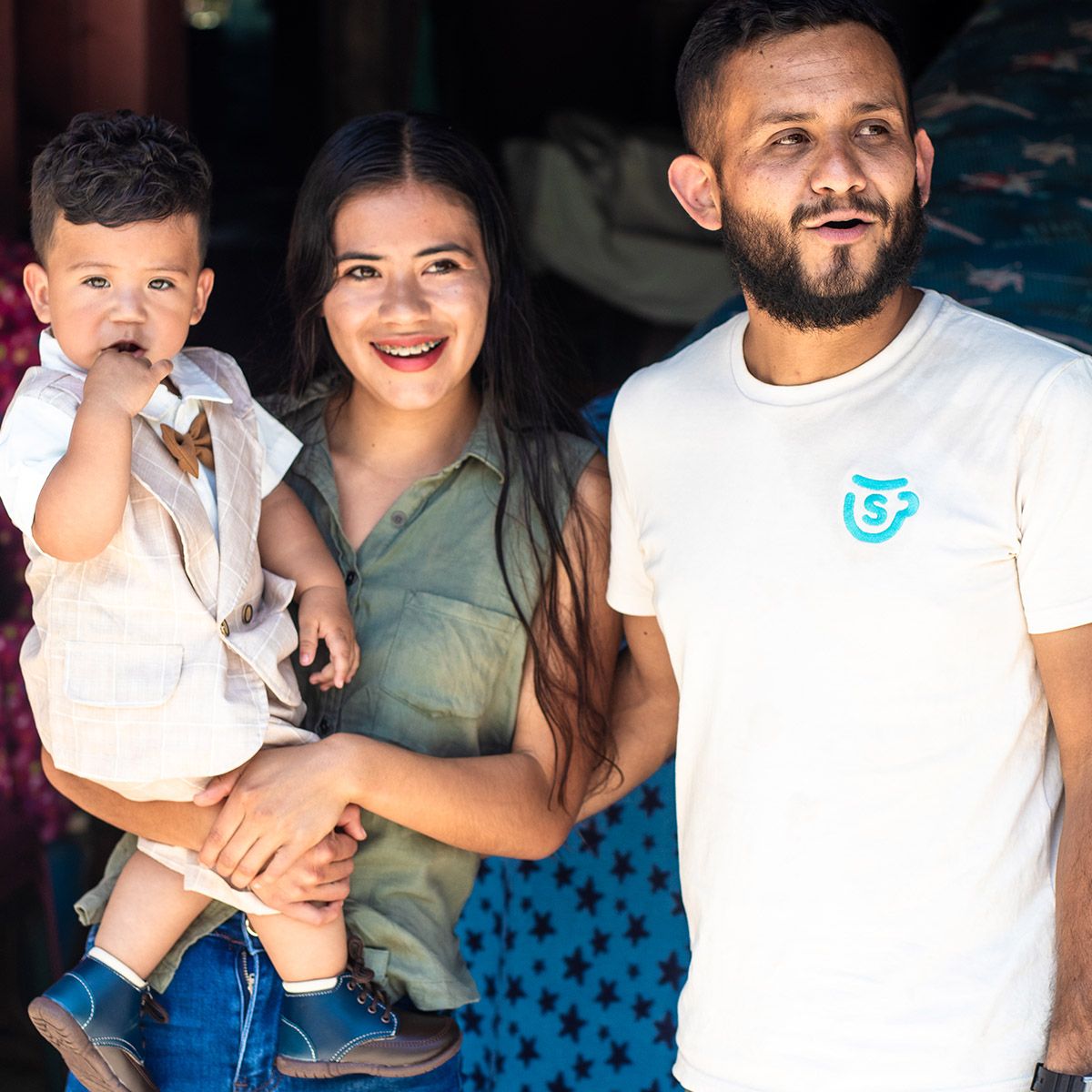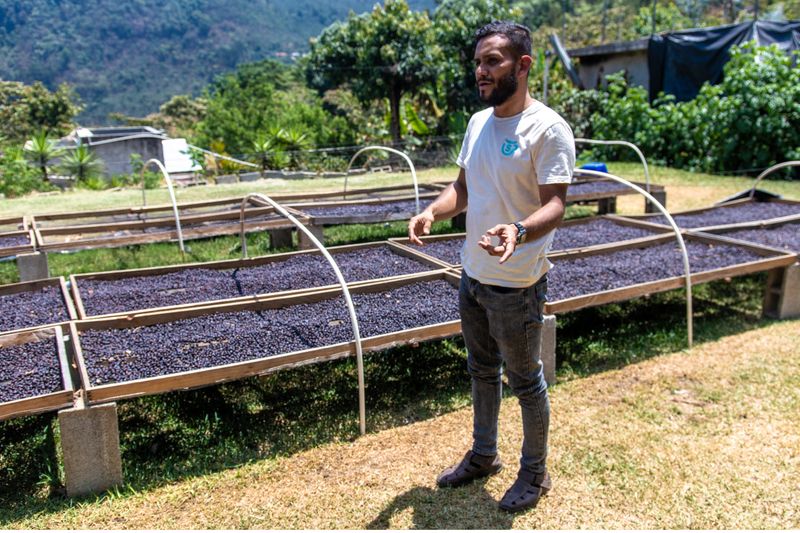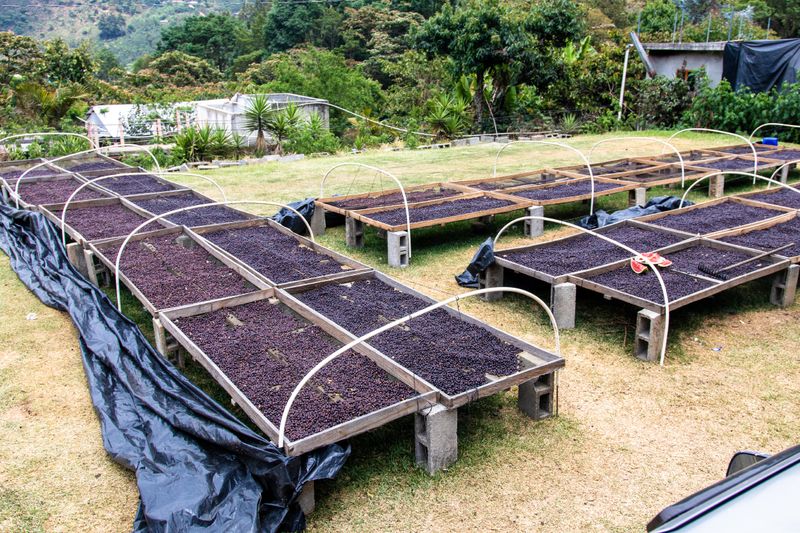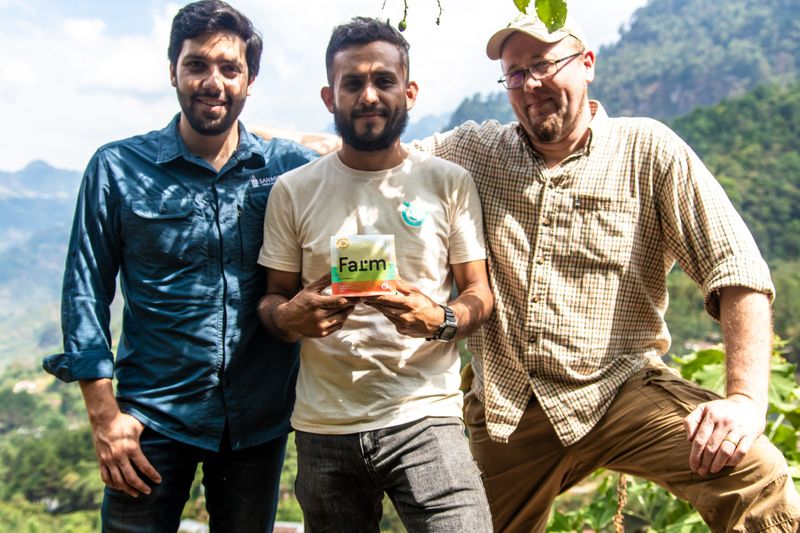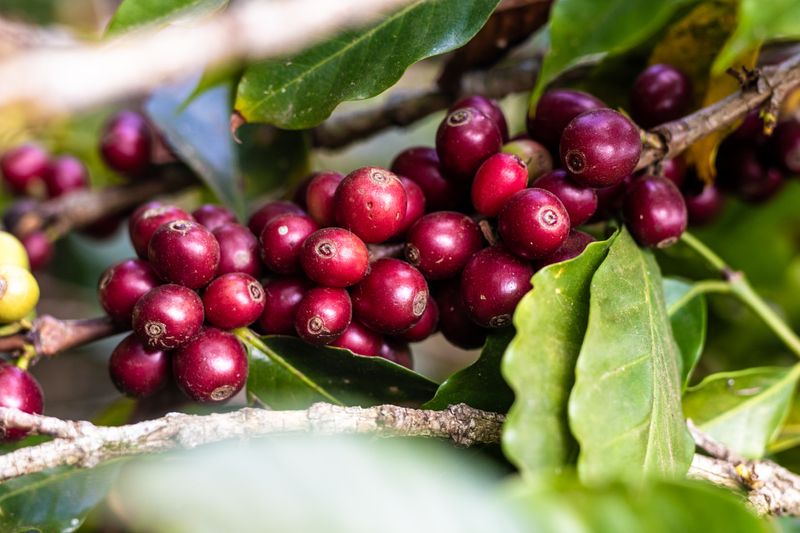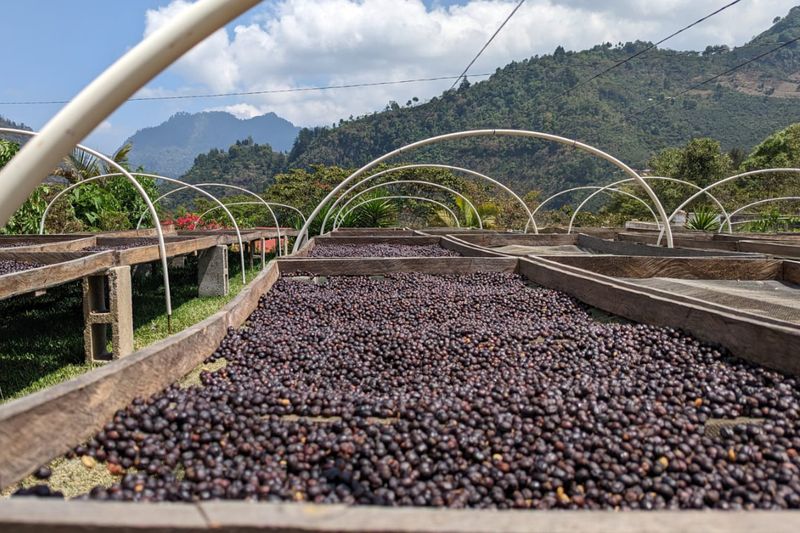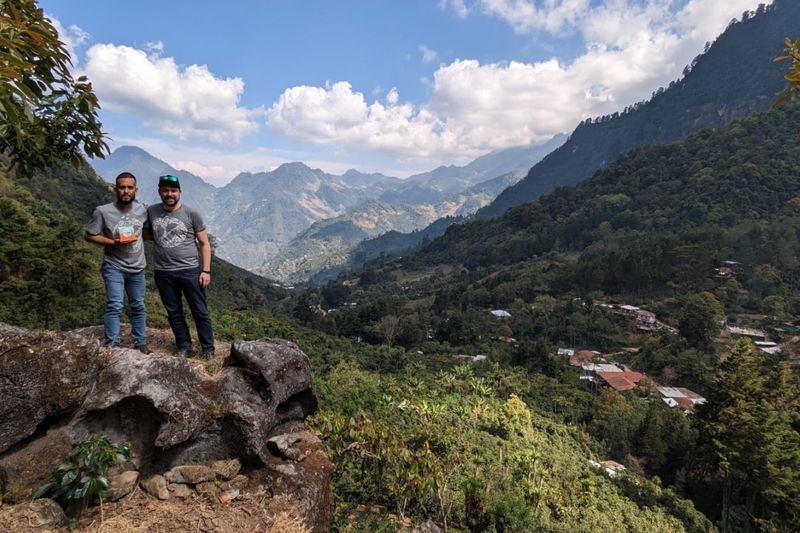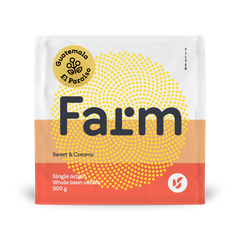Are you sure you want to perform this action?
Urisar Ferneldy
-
Farm
El Paraiso
-
Country
Guatemala
-
Region
La Libertad, Huehuetenango
-
Altitude and size
1800 - 2050 masl, 16 ha
-
Varieties
Bourbon, Caturra, Bourbon sidra, Geisha, SL
-
Crop
January - March
-
Cooperation
Since 2022
